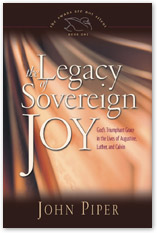 There seems to be a glut of books on new ways of doing church recently – liquid church, provocative church, deep church, messy church, intelligent church, relevant church, deliberate church, positive church, and here “total church”.
There seems to be a glut of books on new ways of doing church recently – liquid church, provocative church, deep church, messy church, intelligent church, relevant church, deliberate church, positive church, and here “total church”.
Total Church is co-written by Tim Chester and Steve Timmis, who are leaders in the “Crowded House” in Sheffield. The unique thing about them is that while being very conservative doctrinally (I’m pretty sure they are Reformed and cessationist), their approach to church is quite radical.
Their contention is this – churches should be built around gospel and community. The “gospel” part of this breaks down into two aspects – they are word-based, and they are mission-focused. Both of these must be done in the context of community, so the word is taught and applied in community and mission is done in community. They note that many churches are trying to be both faithful and contemporary with their presentation of the gospel, but ultimately find that there are very few opportunities for unbelievers to actually hear that message.
They argue that churches have got so much going on that they transition from “mission” mode, to “maintenance” mode. We need to run fewer evangelistic events, youth clubs and social projects to allow more sharing of our lives with unbelievers. This means starting new congregations rather than growing existing ones.
The type of “sharing of lives” they seek to cultivate in their house churches is one in which the church itself adapts to changes in peoples lives. So when a family have a baby, for example, it is the whole churches responsibility to help them and support them in practical ways, not just that family who have to adapt themselves so they can remain part of church life. And while avoiding “heavy shepherding”, they stress the importance of people making decisions (such as moving house, changing job) with regard to the community and in discussion with them, because they are family, just as a husband would discuss with his wife and family.
By becoming a Christian, I belong to God and I belong to my brothers and sisters.
Having laid a theological foundation for word and mission centred community, the second part of the book moves on to look at some practical topics. The authors do not insist that you give up your existing church models and do things their way, but lay down a challenge to “make community infectious”.
Become a blessing by offering hospitality, showing practical care, dropping in on people. Create around you a group of Christians who will share their lives and encourage one another in the faith. You might start with your home group. Often home groups are little more than a meeting. Make yours a community by acting like a community.
Having laid down the principles of “gospel” and “community”, the book shows how these two strands should run through everything we do. So evangelism must be done in community, sharing our lives rather than seeking out “evangelistic opportunities” to hit people with the gospel message. The conviction is that “our love for one another, to the extent that it imitates and conforms to the cross-love of Jesus for us, is evangelistic”. Evangelism involves sharing our lives and sharing the word, and so we need to introduce people to loving a community, not just to church meetings.
There is a challenging chapter on social involvement, which warns that we tend to build churches aimed at professionals. We may not be racist, but are we truly open to those of a different social class to ourselves? The authors encourage us to move beyond “hit and run” social action, to a model where we offer the poor and needy a genuine place of welcome and community.
Church planting is strongly encouraged as the mode of church growth. “The household model is in some way defining of church. The church is the household of God. … For New Testament Christians the idea of ‘church’ was synonymous with household and home.” The authors do not however give any indication of what they consider an ideal size for such a congregation before a new one is to be started. They try not to be too dogmatic, especially concerning the relation of these households to one another. “It matters little whether these small groups are called churches, home groups or cells, as long as they are the focus for the life and mission of the church.”
Discipleship and training is also worked out in the context of community. New leaders are trained by a leader sharing their life and ministry with others. The conviction is that “truth cannot be taught effectively outside of close relationships.” Pastoral care, too, is to be handled in the context of community, not by simply passing people on to “professionals”, nor by becoming amateur “counsellors”, but by the conviction that as we live in community, applying the word in ordinary situations we will see lives transformed.
A chapter on spirituality takes a bold swipe at ideas of “solitude, contemplation and silence”, arguing that these are the luxury of the spiritual elite. Actually we are called to community, meditation on the word and prayer. The authors encourage that Bible study and prayer (and even sermon preparation) should be done in community, not in isolation. Theology too, “is also the task of the church, because the only theology that matters, and is worthy of the name, is practical theology.”
A fascinating chapter on apologetics asks whether we have mistaken the symptoms for the cause. We have assumed that people reject Christianity because of an intellectual problem, rather than because they don’t want God. Thus our attempts to prove Christianity to be rational, while helpful, may miss the mark. A relational apologetic is required. “Christian community is the ultimate apologetic.”
Equally controversial is their chapter on youth work. They argue that much effort is spent with little fruit in running large scale youth events. Rather, it would be better for Christians to invest their time in community with a smaller number of young people, effectively discipling them. Also, the youth are to be included in the church community, rather than being filtered off into “youth church”. It is certainly an idea worth some reflection, but not without some serious practicalities to be worked through.
Finally, the criteria for success is of course faithfulness rather than numbers. Success is being a gospel-centred community. “It is judged in terms of growing Christians and gospel opportunities.” Ultimately, the authors close with a reminder that “Christianity is not a strategy or a set of principles. It is a relationship of love with the triune God.”
I can wholeheartedly commend this book to anyone wanting to shake up their thinking about church. I didn’t agree with all of it, and was left in some cases wanting to know more (for example eldership was not discussed). But this book stands as a fine example of how we can have a radical ecclesiology without losing our biblical moorings.
The church, … is not something additional or optional. It is at the very heart of God’s purposes. Jesus came to create a people who would model what it means to live under his rule. It would be a glorious outpost of the kingdom of God: an embassy of heaven. This is where the world can see what it means to be truly human.
Read more quotes from this book on underlined bits
 I thought it was about time I read a book by Philip Yancey, since most of his books end up as best-sellers and this one won various awards. The subject was also of interest – probably like most Christians, prayer is something I feel that I need to get much better at. Its quite a sizable book for a paperback, running to over 300 pages. You can tell why he is such a popular author. He is a good storyteller and has an easy to read style.
I thought it was about time I read a book by Philip Yancey, since most of his books end up as best-sellers and this one won various awards. The subject was also of interest – probably like most Christians, prayer is something I feel that I need to get much better at. Its quite a sizable book for a paperback, running to over 300 pages. You can tell why he is such a popular author. He is a good storyteller and has an easy to read style.




